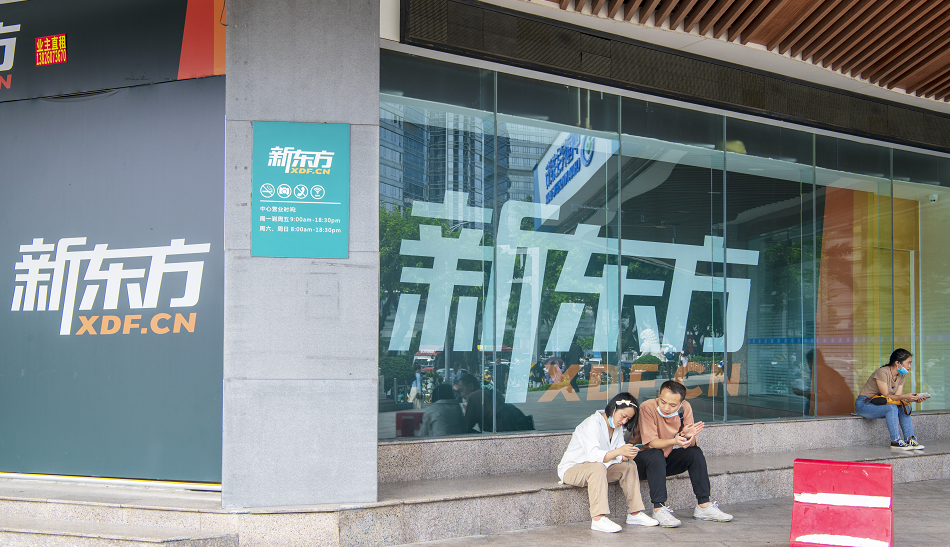Education companies adapt to new needs


Major listed Chinese education companies have made progress in transforming their businesses after having reported heavy losses in the first half of the 2021-22 financial year.
The losses came following the government's enactment of the strictest regulations ever placed on the billion-dollar private tutoring sector in July.
The Ministry of Education recently said that all 25 Chinese tutoring companies listed in the country or overseas no longer offer academic tutoring services to primary and middle school students. The number of such offline tutoring institutions has been slashed by 92 percent, from 124,000 to 9,728.
New Oriental Education & Technology Group, once the country's largest education company, posted $876 million in losses for the six months to Nov 30-a huge contrast with the $229 million net profit in the same period a year earlier.
TAL Education Group, another company known for its after-school classes, reported a $1 billion net loss for the nine months to Nov 30. The company had $53 million in profit over the same period a year earlier.
Industry experts said that the country's education companies should look to turn deficits into profits by accelerating the hunt for new business growth, given their huge user base across the nation.
New Oriental founder Yu Minhong and his colleagues took a giant leap of faith in a different direction, leaping into China's burgeoning livestreaming business. They debuted as e-commerce livestreamers and sold agricultural products like corn, cherries and edible fungus.
"The goal of e-commerce via livestreaming is to help drive rural revitalization and make high-quality agricultural products available to consumers and also increase farmers' income," Yu said.
"We can also leverage its training and online technology advantages to diversify into agricultural training online, which can help farmers broaden their knowledge and improve their skills," he added.
In another case, Rise Education Cayman Ltd signed a merger agreement this year with Dada Auto Inc, a technology services provider, to enter the country's electric vehicle charging market.
New York Stock Exchange-listed Puxin Ltd, a private educational services provider, is also considering diversification into the fast-food restaurant chain business and starting other restaurants within or around its schools.
"Most of the Chinese companies have the advantage of offline and online channels with nationwide reach, which will greatly help them in tapping into many businesses," said Wang Peng, an associate professor at the Hillhouse Research Institute.
"But entering a brand-new industry will also pose great challenges to survival. Businesses such as livestreaming, new energy and catering are already highly competitive," Wang said.
Other listed companies chose what they saw as a safer path by entering the vocational or adult education market, which, according to market consultancy iResearch, hit about 19.19 billion yuan ($3 billion) last year.
TAL launched a new brand called Qingzhou, which focuses on tutoring for postgraduate examinations and qualifying exams for students going overseas, including the Test of English as a Foreign Language and International English Language Testing System.
Gaotu Group also unveiled a new version of its mobile app covering language training, college student examinations, finances, public examinations, teaching, studying abroad, certain types of vocational education services and a family education system class.
Industry experts said that the vocational education market is expected to open new vistas for these education companies as China recently released a series of guidelines to promote the high-quality development of modern vocational education.
The country aims to build a modern vocational education system by 2025, and by 2035, its vocational education is forecast to be ranked among the best in the world, according to guidelines jointly released by the general offices of the Communist Party of China Central Committee and the State Council, China's Cabinet.
Listed companies and leading enterprises in related sectors are being encouraged to develop vocational education. Vocational schools are also encouraged to work with private businesses to develop infrastructure and training centers together, it said.
"Unlike previous policies, the new guideline mentioned for the first time participation of listed companies, which means that such companies, even if they are not leading ones, can be involved in developing vocational education," said Xiong Bingqi, director of Beijing-based 21st Century Education Research Institute.




































